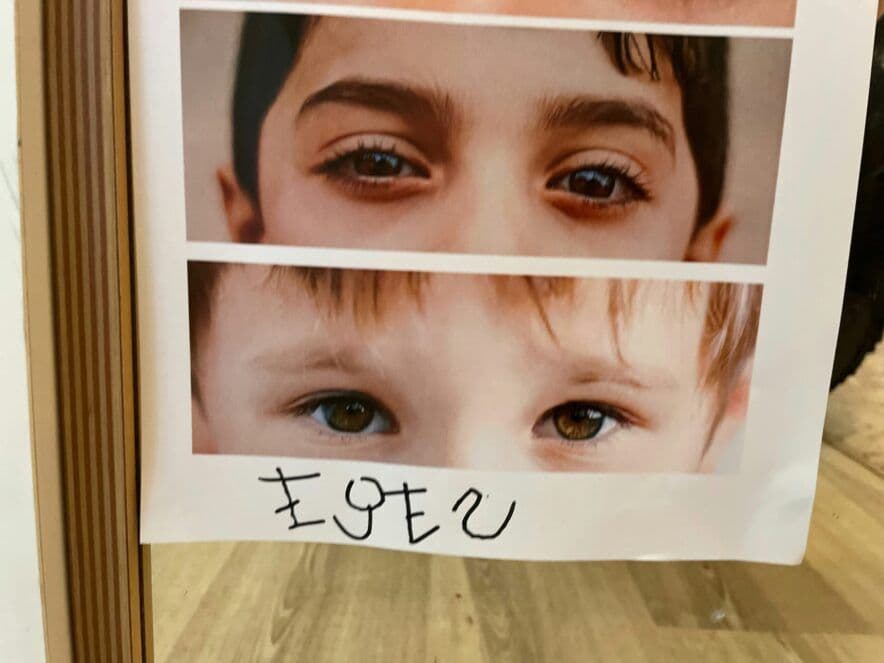COVID-19
Research
COVID research highlights impact of restrictions on children younger than six

Freya Lucas
Feb 03, 2025
Save
The COVID-19 pandemic, and subsequent restrictions such as social distancing, school closures and business disruptions attracted large swathes of research, much of which focused on school aged children.
The social impact of such restrictions on preschool aged children (classed as those under six years of age) was less researched, something which a team of researchers from the University of California, Merced (UC Merced) wished to change.The research team looked at data it had collected prior to the pandemic, discovering that children aged 3½ to 5½ years tested before and after COVID lockdowns had a significant gap in a key cognitive skill, particularly for children from homes with low financial resources and adults with less education.
“It was remarkable to see the drop in kids’ performance,” lead author Professor Rose Scott said.
“On one of the tasks in my lab, children tested before the pandemic could pass at 2 and a half years old. Right after the lockdowns, we were seeing 5-year-olds not passing it.”
The UC Merced team — including graduate students Gabriel Nguyentran and James Sullivan, who co-authored the study — tested the children for a social cognition skill called false-belief understanding — the ability to recognise other people can be wrong.
As a crucial step in distinguishing the mind from reality, false-belief understanding can play a vital role in developing social cooperation, communication and learning.
There were 94 children in the first group tested. Each was given three false-belief tasks. In one task, the child watched as a puppet named Piggy put a toy in one of two containers and left the stage. A second puppet appeared and moved the toy to the other container. Piggy returned.
The child was asked where Piggy would look for the toy. If the child’s false-belief skills were in place, they would say Piggy would choose the first container, though the child knew the toy wasn’t there.
80 per cent of all 5-year-olds in the pre-lockdown group passed. In the post-lockdown group, the success rate fell to 63 per cent. For 5-year-olds from lower socioeconomic homes, only 51 per cent passed — essentially a ‘coin-flip’ guess, Professor Scott said.
Current research agrees false-belief abilities undergo important developments in a child’s first five years, she continued. A toddler who falls behind in cognition skills may grow into a student who struggles to get along with peers or who finds academic tasks more difficult, she warned.
“You think about what a child needs to do to interact with others in a classroom. They want to have friends, but have to take other perspectives into consideration to have effective social interactions.”
“Like, ‘I know you want to play this now, but I really want to play this.’ It’s being able to hold those two viewpoints in mind and still interact.”
The children’s language skills were assessed and their family’s socioeconomic status was measured by the total household income over the past year and the highest degree obtained by either parent. Testing for the first group ran from August 2019 to March 2020, when the pandemic took hold. A second, statistically similar group was tested starting in September 2021.
Children in the post-pandemic group and from lower socioeconomic backgrounds showed a significant drop in cognitive ability compared to the pre-pandemic group. Children from homes at a higher socioeconomic level; however, showed little cognitive effect from the lockdowns.
While the study data does not give a conclusive answer as to why the difference was more pronounced for children of lower socioeconomic levels, Professor Scott said in addition to shutting down formal day care and informal playdates, the lockdown may have put lower-income parents under great financial or mental strain, leading to less communication with their children, which could have in turn led to children spending more passive time on electronic devices, an activity linked to low false-belief understanding.
Follow-up tests in 2023 of some of the post-pandemic group members produced a sobering coda to the study’s published findings. The low scores in false-belief understanding were still there, persisting like a wave, she continued.
In March, the team presented the study’s groundbreaking findings at a conference in Pasadena. Ears perked up. The attention has only accelerated since the paper was published in November.
“Every time I talk about this, other people in my field say, ‘Oh, my gosh, this is it. This is what we're seeing in our data,’” Professor Scott said.
“In December, a colleague at another university emailed her to say the UC Merced study explained so much about what they were seeing in children’s post-pandemic social cognition.”
Access the findings in full here.
Don’t miss a thing
Related topics
Compliance
Understanding Children
In The Field
Advocacy
Allied Fields
Innovative Research
Leadership
Professional development
General News
Legislation
Changes
Politics
Reporting
Examples
Affordability & Accessibility
Report Summaries
Supply & Demand
Events News
Services
Other
Marketplace
Products


















